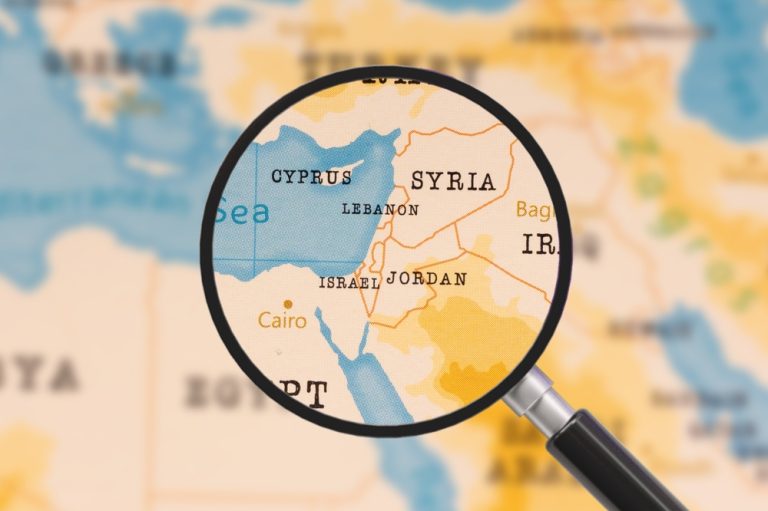
Emmanuel Macron as the quintessential modern European liberal: who will be his successor?
The next French presidential election is likely to be held in April 2027. If a run-off is required, it will take place two weeks later in May, and in the current political climate of social division, there is little doubt that it will take place again, as it has several times before. It is already clear that the “peculiarity” of the new elections will be that the winner of the previous two elections and incumbent French President Emmanuel Macron will not take part in them. Being in power for the second term, he is at the peak of his influence, but according to the law he will not be able to retain his post after 4 years. It is noteworthy that Macron’s two predecessors, Nicolas Sarkozy and Francois Hollande, were not re-elected for a second term. We have already repeatedly written that the victory in the previous elections was not so much the merit of Macron’s image, but rather the success of his very specific political technologies, which were based on pitting his left-wing and right-wing opponents against each other. Nevertheless, Macron’s rule has become a milestone in French political life and many even call it “macronism”. Although the elections are not yet imminent, the legitimate question is whether Macron will be able to hand over power to his heirs, extending the time of liberal “macronism”, or whether his rule will be reduced to a 10-year period of personal power and he will be replaced by the Socialists or Nationalists, who are becoming more and more popular in France every day.
Macron’s current position poses a serious threat to him that his successor will not be elected at the next election. In 2017, against the backdrop of a vivid information campaign to promote Macron as a new progressive politician organized by the French establishment, the “old” parties, such as the Socialist and Republican parties, managed to create an image of Macron as a new national leader amid the electorate’s distrust. Going into the second round with Marine Le Pen of the Front National, who was an anti-system nationalist with a high anti-rating in tolerant France and with a 60-65% approval rating at the time of the second round, Macron won an easy victory with 66.1%. In the first months of his first term, it even seemed that Macron would live up to the public trust because he began to take away excessive preferential treatment from MPs and officials. However, immediately after his election, the level of trust in Macron began to decline sharply, and already from the fall of his first term soon the percentage of distrust in the president was not lower than 50%, and before his last election from 56 to 62% with an average trust of 35-45%. This high anti-rating was the result of a number of protests, including the so-called yellow vests movement.

On the qualitative side, it was caused by a number of miscalculations of the president after he came to power. Back in late 2017, Macron’s image was negatively affected by his intention to implement an unpopular pension reform in a social state like France. At that time, France had special pension regimes. For example, pensions were calculated differently for energy workers, actors, civil servants, and some professions allowed retiring at the age of 50, although the general retirement age for all French people was 62. Macron then proposed to cancel all benefits and accrue pension according to earned points and all retire as a lump sum, and this provoked the anger of the French. At the same time, massive strikes by road, rail and air carriers began because of the unions’ dissatisfaction with working conditions and pay, and this caused transportation crises in the country. This was because Macron tried to implement other unpopular labor and social reforms aimed at shifting the burden of the budget and payments. The reforms were in the interests of large corporations, and the image of Macron as the “president of the rich” was clearly established in public opinion. In 2018, corruption scandals broke out, forcing the president to replace Prime Minister Edouard Philippe and sack 4 other ministers. However, the new ministers and the new Prime Minister Jean Castex did not enjoy the support of the population and were considered unprofessional, which will still force Macron to elevate Elisabeth Borne to the post. The president was also disliked by right-wing patriots, because under him there was a drastic reduction in the financing of the armed forces, which led to a conflict with the Chief of General Staff Pierre de Villiers and his subsequent dismissal. Macron’s love of ostentatious luxury and show irritated everyone. Thus, the president began to meet foreign guests not in the Elysee Palace, but in Versailles, and the parade in honor of Bastille Day in 2019 and 2020 turned out to be very expensive and overly chic.
Nevertheless, despite the high anti-rating, with the help of successful conjuncture and correct political-technological steps, Macron was able to successfully complete the presidential campaign in 2022. Already from 2019, he froze all unpopular social reforms, and his current rating in the first round did not fall below 24-25%, and in the end amounted to almost 28%. In the second round he got 58.54%, beating Le Pen on the same “let’s not allow a fascist in power” scheme. At first glance it seemed that his successor in 2027 could run the same scheme, but there are big doubts that things will be as smooth. Compared to Macron, any candidate from his liberal team would be at an initial disadvantage. After his election to the second term, all the tough reforms started with new force, which led to mass protests after the pension reform was implemented, as well as to the last summer riots on ethnic grounds. Now the population has no trust in the elite, which is constantly suspected of selfish intentions, and even less understanding of the meaning of reforms and their necessity. New doubts are constantly arising about the fairness of the distribution of the burden that society is forced to bear as a result of the transformations.
The reforms affect the deep interests and fundamental values of the French and strike at established habits, and therefore French society refuses to accept reality, preferring to minimize the threats and preserve a coherent picture of the world. The egalitarian and individualistic tendencies of social development, first clearly manifested in France during the May 1968 revolution, are in conflict with the “monarchical” character of the Fifth Republic, in which the president was called a “republican monarch” and to the roots of which Macron would like to return. The new candidate of the president’s party will be seen as a dangerous “monarch”. Although the left-right divide in France is largely erased, its basic principles are still intact, Macron’s successor, who will preach a centrist system of values, is caught between two fires. Finally, Macron’s very technocratic approach, the lack of broad public support that only an ideology with elements of a new utopia capable of replacing both the ideals of socialism and the ideology of liberalism could provide, dooms the person who would take over from him to public rejection. The strength of any candidate from Macron’s team will be that he will have a solid team led by the former French leader himself and backed by the establishment and business, while his political rivals will be weakened and fragmented and unsure of what strategy to adopt. The main question is whether the French will accept Macron’s strategy of modernizing France, despite the sacrifices it will require of them, or whether they will prefer a policy of “resistance” that will hit his successor with all its force.

Although some conclusions can only be drawn in 2026, the polls now suggest that France is choosing the second path so far. With 33%, Marine Le Pen is still in the lead, and her third consecutive participation in the second round of elections looks almost guaranteed. On the one hand, this is in line with the proven Macronist plan, but if we take into account that 7% of support has Eric Zemmour, whose votes are likely to go to Le Pen either immediately, if he refuses to participate in the election without the support of his “friend” Vincent Bolloré, or in the second round with a guarantee, 40% of the nationalists look like a serious threat. Another 10-12% of the votes of the other right-wing parties may go to Le Pen and not to “Macron 2.0”, and because of hatred for the pension reform, cries about “fighting fascism” may not have any effect. Besides, Macron’s heirs look dim for now. The President of the National Assembly Braun-Pivet has a hopeless 5%, the renegade and opportunist François Bayrou is not far behind her and received 7%, 9% could achieve the unsuccessful former Prime Minister Jean Castex, and 11% pollsters awarded the current head of government Elisabeth Borne, who shared with Macron the blame for raising the retirement age. A slightly better result of 12% went to Macron’s rather vivacious and flamboyant former press secretary Gabriel Attal, who is unlikely to go to the polls by virtue of being gay. The top three “copies of Macron” with 14% is opened by Minister of the Interior Gerald Darmanin, who is hated by both the left and even part of the right due to his direct responsibility for beating protesters at numerous rallies. In second place with 16% is Macron’s close friend, colleague and Economy and Finance Minister Bruno Le Maire, who is the most similar to the incumbent president in his grayness and inability to work with the electorate. The best of the macronists so far is Macron’s first Prime Minister, Edouard Philippe, who boasts 22% of public support. Against this background, the leader among the leftist candidates, Jean-Luc Melenchon, has 17%, but thanks to the “useful vote” can mobilize up to 30% of the votes of various Socialists and Communists. In such circumstances, it may seem that the chances of the macronists are negligible. But the power of the establishment has always worked wonders, and it has until 2027 to take the necessary steps to stay in power. Emmanuel Macron has become the quintessential modern European liberal in almost 7 years, and he still has a good chance of passing his image and influence on to his ideological counterpart.

